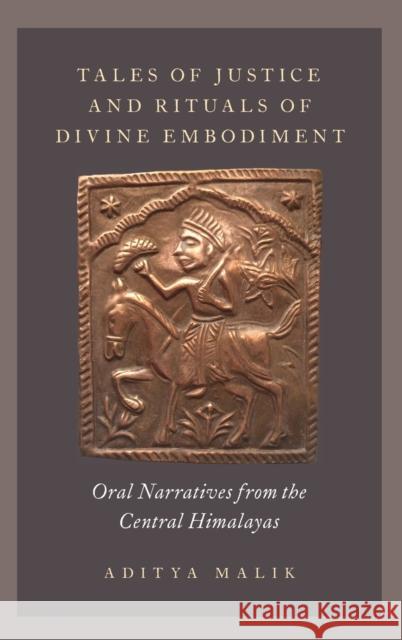Tales of Justice and Rituals of Divine Embodiment: Oral Narratives from the Central Himalayas » książka
Tales of Justice and Rituals of Divine Embodiment: Oral Narratives from the Central Himalayas
ISBN-13: 9780199325092 / Angielski / Twarda / 2016 / 320 str.
Tales of Justice and Rituals of Divine Embodiment: Oral Narratives from the Central Himalayas
ISBN-13: 9780199325092 / Angielski / Twarda / 2016 / 320 str.
(netto: 556,13 VAT: 5%)
Najniższa cena z 30 dni: 569,90 zł
ok. 30 dni roboczych
Bez gwarancji dostawy przed świętami
Darmowa dostawa!
Based on extensive ethnographic fieldwork conducted in the Central Himalayan region of Kumaon, Tales of Justice and Rituals of Divine Embodiment draws on oral and written narratives, stories, testimonies, and rituals told and performed in relation to the "God of Justice," Goludev, and other regional deities. The book seeks to answer several questions: How is the concept of justice defined in South Asia? Why do devotees seek out Goludev for the resolution of matters of justice instead of using the secular courts? What are the sociological and political consequences of situating divine justice within a secular, democratic, modern context? Moreover, how do human beings locate themselves within the indeterminateness and struggles of their everyday existence? What is the place of language and ritual in creating intimacy and self? How is justice linked to intimacy, truth, and being human?
The stories and narratives in this book revolve around Goludev's own story and deeds, as well as hundreds of petitions (manauti) written on paper that devotees hang on his temple walls, and rituals (jagar) that involve spirit possession and the embodiment of the deity through designated mediums. The jagars are powerful, extraordinary experiences, mesmerizing because of their intensity but also because of what they imply in terms of how we conceptualize being human with the seemingly limitless potential to shift, alter, and transform ourselves through language and ritual practice. The petitions, though silent and absent of the singing, drumming, and choreography that accompany jagars, are equally powerful because of their candid and intimate testimony to the aspirations, breakdowns, struggles, and breakthroughs that circumscribe human existence.










